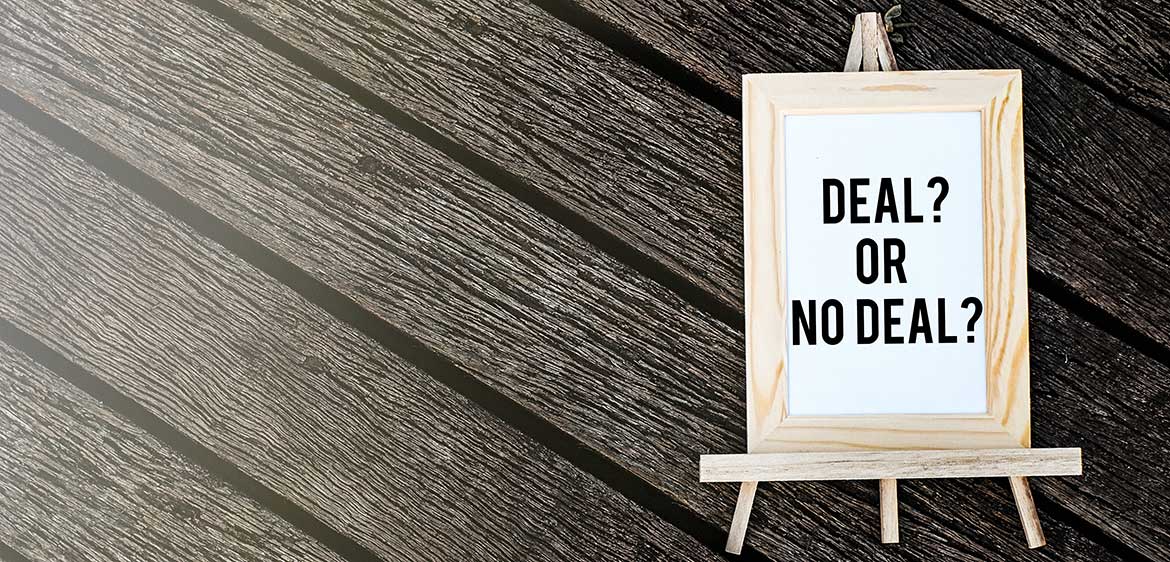I suspect that the Brexit negotiations will provide a fruitful source of negotiating stories over the next two or three years (longer – much longer, if you believe some commentators), so I apologize in advance to our many overseas readers. It is instructive and, dare I say, amusing to watch people
- Who really do not know what a negotiation actually is
- Who have no experience of sitting in a room with a hard-nosed negotiator on the other side of the table and what it feels like make unguarded comments that sound good in a sound bite.
The UK’s prime minister, Theresa May came out with a cracker recently. She said, “No deal is better than a bad deal”. Now this is a phrase that she will have heard negotiators use many times and oft; and many times and oft, it is a sound and useful point to consider when it comes to setting out your prioritized goals and objectives. It is the kind of useful advice that salespeople, for example, should heed when they are under pressure to make some final concessions in order to strike a deal and win some business.
I used to have a colleague who never felt better than when he signed “a thousand-case” deal into a supermarket. The fact that he had sold his soul to the buyer; the fact that he then divided the soup types not by demand, but by pallet layers; the fact that he had lost profit per case sold – all of these meant nothing to him as he sought to sell his high-volume sale. Someone else (typically me!) seemed to have to pick up the pieces six months later as we fought to offload vast quantities of unwanted soup (Granny’s Golden Vegetable soup, anyone?) at vastly reduced prices per can! My colleague’s head had been turned by a magic number and the deal that he struck was unsustainable in the long term.
Glib phrases will not cut it in the Brexit negotiations. The Brexit committee of the House of Commons has published a report, the gist of which is that the phrase “no deal is a better deal” is, in the majority of the committee’s view (some committee members felt unable to sign the final report) unsustainable. The committee has urged ministers to work out what the cost of “no deal” actually is and has pointed to a number of potential downsides of not concluding a deal. The committee chairman, Hilary Benn specifically mentioned the effects of “no deal” on the UK finance, farming, travel and fishing industries in an interview that he gave the BBC.
Here’s the thing. Any negotiator needs to focus on the deal that they want to strike, witness the prime minister’s opening statement in the House of Commons last week. She was absolutely right to flag this vision up as a realistic and legitimate target towards which her negotiating teams should be aiming. But equally, the negotiator needs to know how far they can go issue by issue; in other words they need to be aware of their bottom line. One of the best tests of your bottom line is to imagine a situation in which you failed to achieve it; is that position worse than your bottom line? If it is, then you need to rethink your limit position.
Now, I’m not saying that the negotiator should focus on their limit – just be aware of the consequences of “no deal!”. I hope to goodness that our Brexit negotiators have given this serious thought.

